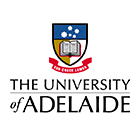Master of Engineering (Chemical)
Master of Engineering (Chemical)
Chemical engineering is all about changing raw materials into useful products we use every day in a safe and cost-effective way. Chemical engineers create and develop the processes to produce, change or transport products and materials. They create, sustain and improve industries as diverse as clean energy, water and waste…
Categories
COURSE DESCRIPTION
Chemical engineering is all about changing raw materials into useful products we use every day in a safe and cost-effective way. Chemical engineers create and develop the processes to produce, change or transport products and materials. They create, sustain and improve industries as diverse as clean energy, water and waste water treatment, food and beverage processing, petrochemicals, primary metals, biotechnology, pharmaceuticals, and specialty chemicals.
Our Master of Engineering (Chemical) is suited to high-achieving engineering graduates, as well as engineers with relevant work experience. It is fully accredited by Engineers Australia.
What will you do?
This intensive degree comprises a foundation year and an advanced studies year. You will:
explore separation processes and simulation design
build skills in business and project management
study fluid and particle mechanics
pursue electives according to interests and career goals—from Pyrometallurgy to Transport Processes in the Environment
undertake a significant research project.
To stay in the program, you’ll need to maintain a high grade point average. An exit path will be available if you’re only completing the foundation year. In this case you’ll receive a graduate diploma.
Where could it take you?
You could develop pharmaceuticals, biofuels, cosmetics or foods. You might work in water treatment, waste management or even tissue engineering. You could conduct safety and risk assessments on process plants. Perhaps you’ll design environmentally sustainable combustion systems.
Career Readiness
Chemical engineering graduates can seek national and global careers, and may work in an office environment, the outdoors, a chemical plant or a combination of these. Some industries and careers that chemical engineers are involved in include:
biotechnology industries (e.g. biofuel production, production of nutrients from microalgae)
pharmaceutical industries (e.g. production of vaccines and antibiotics)
winemaking
food production (e.g. beer, milk, cheese)
petrochemicals (e.g. oil refining and natural gas processing)
industrial bulk chemicals industries (e.g. production of chlorine and explosives)
personal and home care products (e.g. production of detergents, soaps and cosmetics)
environmental engineering (e.g. air pollution control, water and wastewater treatment, waste disposal, resource management)
semiconductors and microelectronics (e.g. production of computer memory and central processing units, flat screen televisions)
nanotechnology (e.g. production of nanoporous materials for catalysis, separations and energy storage)
management consulting (e.g. engineering business and financial management).
Many chemical engineers go on to manage companies, or start their own businesses.
Potential careers
Chemical Engineer, Engineer, Biotechnology, Biotechnology Engineer, Pharmaceutical Engineering, Food Engineer, Food Scientist, Food Technologist, Winery Engineer, Metallurgist, Nanotechnologist, Process Engineer, Environmental Engineer
EDUCATIONAL INSTITUTION
The University of Adelaide unites and serves those striving to change the world—and themselves—for the better. It’s a place where history is made.Established in 1874, we’re home to over 29,000 students and 3,000 staff, all striving to create progress. For our community. For all. This is a university of outstanding quality—ranked as a top 100 global university—in the heart of the city of Adelaide.We were our country’s first university to welcome female students. The first to teach science and business. Our alumni have won Nobel Prizes, led the nation, and walked in space.




